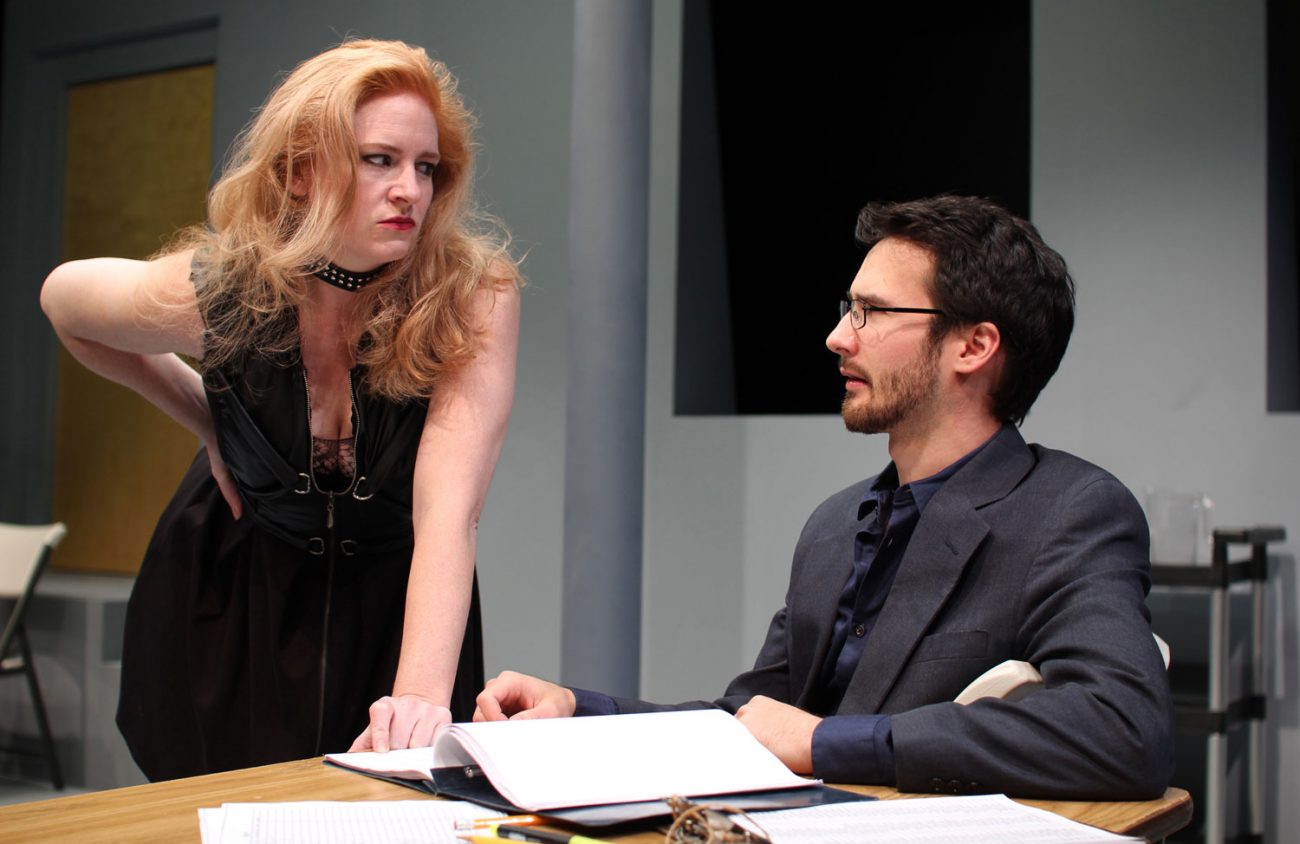Even now, several days after seeing it, digesting it and churning it all over in my mind, I find I’m having a mixed response to Oregon Contemporary Theatre’s current production of Venus in Fur, David Ives’ two-person play-within-a-play based on Leopold von Sacher-Masoch’s 1870 novel of the same name.
Of several things, however, I am certain. The production itself is magnificent, revealing once again the sure touch of director Craig Willis as an elegant and economical manager of dramatic tension.
More important, the acting is divine. This vicious little chamber piece of a play essentially spools out as one long erotic tête-à-tête between the sexes: Thomas, the haughty playwright-director who has adapted Sacher-Masoch’s masochistic work, and Vanda, the seemingly flighty and Brooklyn-trashy actress who muscles her way into an audition for the lead role.
The demanding part of Vanda, which calls for quick and sophisticated transformations in tone and character, is an actor’s dream role, and Inga R. Wilson launches herself into it with grace and furious energy. Her performance is a tour-de-force, at times literally breathtaking.
Joseph Workman, so good in OCT’s recent production of Melancholy Play, is also strong in the role of Thomas, though, compared to Vanda, he’s given much less to work with. And here, precisely, is where the play itself seems to undermine its own significant artistry.
For the first, say, two-thirds of Venus in Fur, the interaction between Vanda and Thomas is exquisitely rendered, a compelling and hilarious back-and-forth that is fraught with sexual and psychological ambiguity, equal parts seduction and battle. As Vanda reads for her part, she flips back and forth between naiveté and supreme confidence, even dominance.
For his part, Thomas is perpetually thrown back on his heels, as he questions both his own assumptions about Vanda and the true nature of her identity. Unfortunately, as the play progresses, his character becomes less and less subtle, more and more two-dimensional, until at last he is turned into a strawman — a parody of infantilized masculinity.
George Orwell pointed out that all art is, at bottom, political, but not all politics makes good art. To be sure, there’s much to be said about male aggression and female subjugation, but it reveals a failure of faith — perhaps, even, the most insidious kind of sexism — to stack the decks in such an obvious way.
By slowly but relentlessly reducing the character of Thomas to slapstick chauvinism and misogynistic truisms (the Thelma & Louise maneuver) while at the same time elevating Vanda to the status of an avenging angel, utterly free of fault, the playwright plays to the cheap seats, eliciting millennial cheers from an audience afraid to question the difference between feminism and male-bashing (and none cheering more than the men, as they glance askance for approval from the women …).
In overcoming one error, a fool often rushes to its opposite, and it sometime seems that the ideological arrogance of the left has bled into intolerance and caricature, the enemies of art. Ives is a supremely talented playwright, sharp with dialogue and riotously funny, but I fear that, in so arduously placing his bull’s-eye, he shoots himself in the foot. The whole thing turns mean-spirited and pandering. The gun in the first act misfires in the last, figuratively speaking.
Am I dismissing this production? Not in the least. Far be it from me to make up your mind for you. In fact, I thoroughly enjoyed Venus in Fur: It’s enthralling, mesmerizing at times, witty and adroit. I was laughing right along with everybody else. It wasn’t until the whole thing was over that I paused and thought, “Now, wait a minute. …”
Venus in Fur plays through June 10 at Oregon Contemporary Theatre; $20-$30, tickets at 541-465-1506 or octheatre.org.
